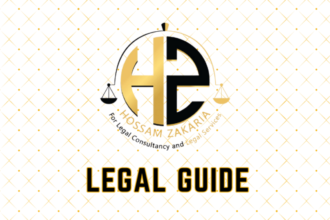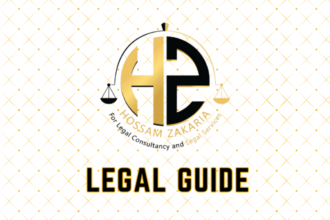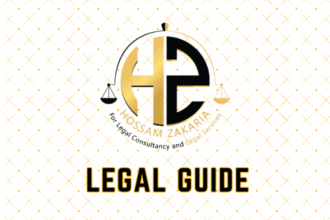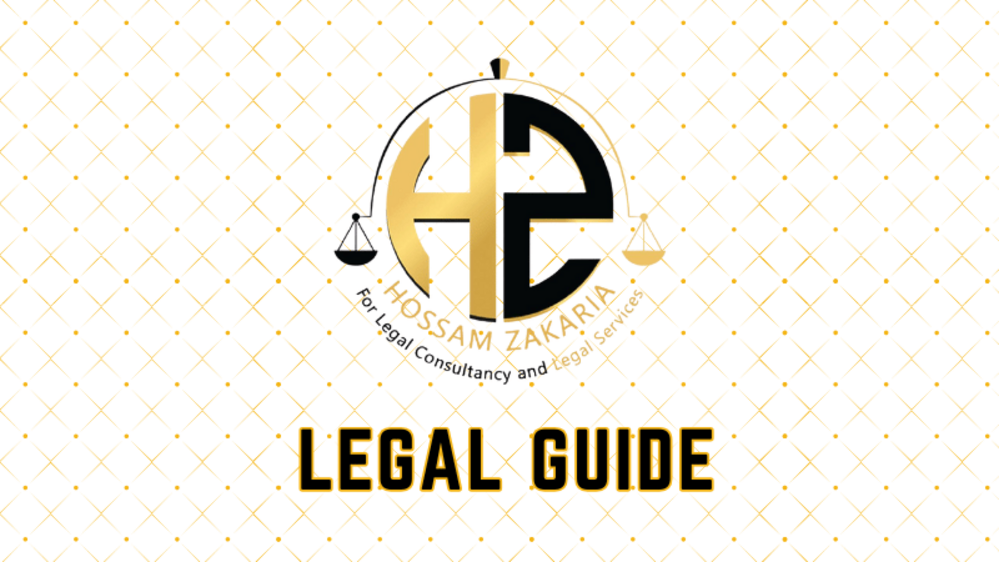Introduction
As cross-border economic ties between the UAE and Saudi Arabia deepen, more UAE businesses are expanding into Saudi markets, establishing subsidiaries, and opening local bank accounts. However, evolving regulations in the Kingdom of Saudi Arabia (KSA) have introduced complex legal frameworks governing the freezing and seizure of bank accounts—including accounts held by foreign business entities. Navigating these rules is critical for business continuity, risk management, and legal compliance.
Recent legislative and regulatory changes in Saudi Arabia, as well as in the UAE, underscore the need for organizations to understand the nuances of account freezing and asset seizure processes. This article offers comprehensive legal analysis, practical consultancy insights, and actionable recommendations to help UAE-based businesses proactively manage, prevent, and respond to bank account freezing or seizure scenarios in KSA. The expert commentary is grounded in official sources, including the UAE Ministry of Justice, Saudi Monetary Authority (SAMA), and other Gulf legal frameworks. The guidance is particularly relevant in 2025, as both national and regional regulations evolve in response to anti-money laundering (AML), counter-terrorism financing (CTF), and cross-border enforcement imperatives.
Table of Contents
- Understanding Saudi Bank Account Freezing and Seizure: Legal Overview
- Navigating Cross-Border Legal Dynamics: UAE and KSA
- Key Saudi Regulations and Official Guidelines
- The Freezing and Seizure Process Explained
- Comparative Analysis: Changes in KSA and UAE Law
- Risks of Non-Compliance for UAE Businesses
- Practical Compliance and Risk Mitigation Strategies
- Case Studies and Hypotheticals
- Best Practices and Action Steps for UAE Executives
- Conclusion and Forward-Looking Insights
Understanding Saudi Bank Account Freezing and Seizure: Legal Overview
Context and Rationale
Saudi Arabia’s bank account freezing and seizure rules are designed to combat financial crimes, enforce judgements, and support regulatory compliance. These processes often stem from legal actions, regulatory requests, or law enforcement investigations aligned with Saudi anti-money laundering (AML) and counter-terrorism financing (CTF) objectives.
For UAE businesses with operations or accounts in KSA, the legal landscape poses unique challenges and opportunities. Given the growing pace of economic and capital flows, Saudi authorities have fine-tuned their frameworks to ensure effective enforcement while preserving commercial trust and investment confidence.
Key Terms and Definitions
Bank Account Freezing: The temporary suspension of all or part of a bank account’s operations by order of a competent Saudi authority, such as the Public Prosecution, SAMA, or a designated judiciary body.
Bank Account Seizure: The legal confiscation of funds or assets from a bank account, generally pursuant to a final judgement or lawful authority.
Cross-Border Enforcement: Processes where Saudi authorities enforce judgments or orders (including those from the UAE or other Gulf states) against accounts or assets within Saudi jurisdiction.
Navigating Cross-Border Legal Dynamics: UAE and KSA
The Evolving Gulf Regulatory Architecture
Bilateral agreements, harmonization efforts by the Gulf Cooperation Council (GCC), and the implementation of international recommendations (e.g., Financial Action Task Force—FATF) are shaping the cross-border regulatory landscape. UAE entities operating in KSA must not only comply with local Saudi regulations, but also remain aligned with UAE obligations, notably under:
- Federal Decree-Law No. 20 of 2018 on Anti-Money Laundering and Combating the Financing of Terrorism and Illegal Organisations (as amended, including 2024/2025 updates)
- The UAE Central Bank Circular No. 24/2019 (and later updates) on AML/CTF for financial institutions
Legal cooperation for enforcement and asset recovery is facilitated by MoUs and treaties between the two countries, particularly for serious crimes, economic offences, and judgement enforcement.
Emerging Regulatory Coordination: A 2025 Perspective
Recent legal updates in both jurisdictions underscore the importance of understanding dual compliance obligations. For UAE businesses, failure to align internal policies with both Saudi and UAE AML/CTF standards can expose entities to double enforcement actions, as well as reputational risk and operational disruption.
Key Saudi Regulations and Official Guidelines
Principal Legal Sources Governing Freezing and Seizure
- Saudi Law of Combating Money Laundering (Royal Decree No. M/39, as amended)
- Saudi Law on Combating Terrorism Crimes and Financing (Royal Decree No. M/21/1439H)
- Implementing Regulations by the Saudi Arabian Monetary Authority (SAMA), especially SAMA Circulars and Guidelines for Banks
- Executive Regulations issued by relevant authorities for enforcement mechanisms
Role of SAMA and the Judiciary
SAMA acts both as a regulator for banking and financial institutions and an enforcer of freezing/seizure directives in coordination with prosecutorial, judicial, and law enforcement authorities. All Saudi banks are required to comply immediately with official freezing or seizure orders, whether they originate domestically or through cross-border mutual legal assistance channels.
The Freezing and Seizure Process Explained
Triggers for Bank Account Freezing or Seizure
Saudi authorities may freeze or seize bank accounts based on:
- Suspicion or investigation of AML/CTF violations
- Pending or ongoing litigation (civil or criminal)
- Enforcement of local or foreign judicial judgements
- Administrative directions from regulatory agencies (e.g., SAMA, Ministry of Finance)
Step-by-Step Breakdown
| Stage | Description | Responsible Authority |
|---|---|---|
| Initiation | Trigger via investigation, court order, or regulatory request | Public Prosecution, SAMA, Judiciary |
| Instruction to Bank | Formal directive issued to bank regarding identified account(s) | SAMA or Judicial Body |
| Implementation | Immediate freezing or marking of account as ‘under freeze’; notification to account holders | Bank Compliance Team |
| Investigation/Judicial Review | Assessment of underlying facts, resolution of disputes, opportunity for appeal | Court, Administrative Tribunal |
| Release or Seizure | Order to release freeze or proceed with seizure/confiscation | Judiciary, Prosecutor, SAMA |
Notice and Rights of Account Holders
While Saudi procedures ensure swift action, affected account holders—including corporate entities—are generally notified after the fact, with limited ex-ante appeal rights. Legal avenues for appeal or objection are available but often require prompt and coordinated action by local counsel.
Comparative Analysis: Changes in KSA and UAE Law
Comparison Table: Key Differences and 2025 Updates
| Topic | Saudi Arabia (2025) | UAE (2025, Updated) |
|---|---|---|
| Authority to Freeze Accounts | SAMA, Public Prosecutor, Judiciary | Central Bank, Public Prosecutor, Authority per Federal Decree-Law No. 20 of 2018 |
| Notice Requirement | Post-freeze notification, limited prior notice | Notice required within prescribed period, with right to appeal |
| AML/CFT Legal Basis | Law of Combating Money Laundering; Terrorism Law | Federal Decree-Law No. 20 of 2018 (as amended, 2024-2025 updates) and regulatory circulars |
| Asset Seizure Standards | Pursuant to final judicial decision or specified enforcement | Pursuant to final judgment or competent authority order |
| Cross-Border Recognition | Subject to bilateral or GCC treaties; court-to-court request | Through memoranda, treaties, and reciprocal recognition |
| Appeal/Remedy | Available upon notification; strict deadlines apply | Express right to challenge; well-defined process |
Suggested Visual
Include: A flow diagram showing parallel processes in UAE and KSA for bank account freezing and seizure, from initiation to appeal and release.
Risks of Non-Compliance for UAE Businesses
Legal, Financial, and Reputational Risks
Non-compliance or mismanagement of Saudi freezing and seizure rules can result in:
- Loss of access to critical working capital and operational funds
- Irrecoverable asset seizure if timelines for challenge are missed
- Contractual penalties or claims by partners, suppliers, or employees due to payment suspension
- Potential blacklisting or regulatory sanctions in KSA or the UAE
- Reputational harm impacting investor confidence and cross-border relationships
Penalties for Breach: A Comparison Table
| Breach Type | KSA Consequence | UAE Consequence |
|---|---|---|
| Failure to Cooperate with Freezing Order | Substantial fines, possible criminal liability, regulatory reporting | Fines, license suspension, blacklist, further investigation |
| Knowingly Assisting Suspicious Transfers | Severe criminal penalties, company prosecution, public disclosure of breach | Fines, imprisonment, administrative penalties |
| Delayed Reporting of Freeze Action | Regulatory censure, business license review | Reporting obligations under Central Bank and AML law; fines |
Practical Compliance and Risk Mitigation Strategies
Steps for Robust Compliance
- Enhanced Due Diligence: Regularly screen counterparties and transactions using both KSA and UAE AML lists; deploy robust KYC procedures bank-wide.
- Cross-Border Policy Alignment: Harmonize internal compliance policies with the stricter standard from either UAE or KSA AML/CTF regulations.
- Proactive Monitoring: Use transaction monitoring tools configured for dual-jurisdiction thresholds and triggers.
- Invoice and Payroll Flexibility: Design payment and payroll cycles with contingency buffers to reduce disruption if access to funds is interrupted.
- Emergency Playbook: Prepare an internal escalation procedure for rapid legal consultation and communications with key partners if a freeze occurs.
- Legal Representation: Retain bilingual (Arabic-English) counsel in both UAE and KSA who are experienced in cross-border enforcement and dispute management.
- Staff Training: Conduct regular workshops for finance, HR, and risk teams on the latest updates (e.g., “UAE law 2025 updates”) and mitigation strategy.
Suggested Visual
Include: Compliance checklist or infographic summarizing these seven key risk mitigation steps.
Case Studies and Hypotheticals
Case Study 1: Payroll Interruption for a UAE Subsidiary in Riyadh
A UAE engineering firm’s Saudi branch faced a sudden freeze of its Riyadh operating account after a cross-border transaction flagged by SAMA’s monitoring unit. Despite robust compliance practices in the UAE, the firm had overlooked a KSA-specific reporting duty. This led to a temporary salary payment failure and threatened supplier contracts. Rapid legal intervention, including engagement with Saudi counsel and presentation of due diligence evidence, enabled a prompt review/correction, but not before incurring reputational and financial damage.
Case Study 2: Enforcement of UAE Judgment in Saudi Arabia
A UAE manufacturer secured a court judgment in Dubai concerning contract-related damages. However, as the respondent’s assets were primarily held in Saudi banks, the UAE judgment required formal recognition by the Saudi judiciary. Substantial delays ensued due to gaps in documentation and protocol misalignment, underscoring the necessity for expert local counsel and pre-emptive asset tracing.
Hypothetical: AML Investigation in Both Jurisdictions
An Emirati trading company with operations in Jeddah is subject to simultaneous AML investigations by both UAE and Saudi authorities. The company faces parallel freezing actions and is required to submit detailed transaction documentation to regulators in both countries under strict timelines. Failure to coordinate response strategies exposes the firm to dual penalties and major business disruption.
Best Practices and Action Steps for UAE Executives
Continuous Legal Readiness and Strategic Planning
- Establish a standing compliance committee to oversee evolving legal obligations in both the UAE and KSA.
- Maintain an early warning system for account-related legal actions based on notifications from local counsel and banks.
- Develop contingency arrangements for payroll, supplier contracts, and intercompany transfers in the event of an account freeze.
- Regularly audit internal practices against both SAMA and UAE Central Bank directives focusing on 2025 “federal decree UAE” requirements.
- Engage in proactive dialogues with KSA banking partners to clarify procedures for freezes, releases, and communications.
Conclusion and Forward-Looking Insights
The dynamic regulatory landscape surrounding bank account freezing and seizure in Saudi Arabia presents both risks and opportunities for UAE businesses. As both the UAE and KSA intensify their AML/CTF efforts and streamline cross-border enforcement through treaties and legal updates, organizations must be vigilant, agile, and well-advised.
Staying ahead demands a dual focus: technical legal compliance and operational readiness. Proactive engagement with qualified counsel and consistent policy alignment are critical in minimizing disruption and sustaining cross-border growth. As 2025 brings further legal harmonization in the Gulf, we recommend that UAE companies operating in Saudi Arabia treat regulatory preparation not as a one-off project but as a core element of strategic risk management.
For tailored support on navigating these and other legal developments, UAE businesses should seek advice from experienced cross-border legal consultants to ensure resilience and compliance as the regulatory landscape continues to progress.



